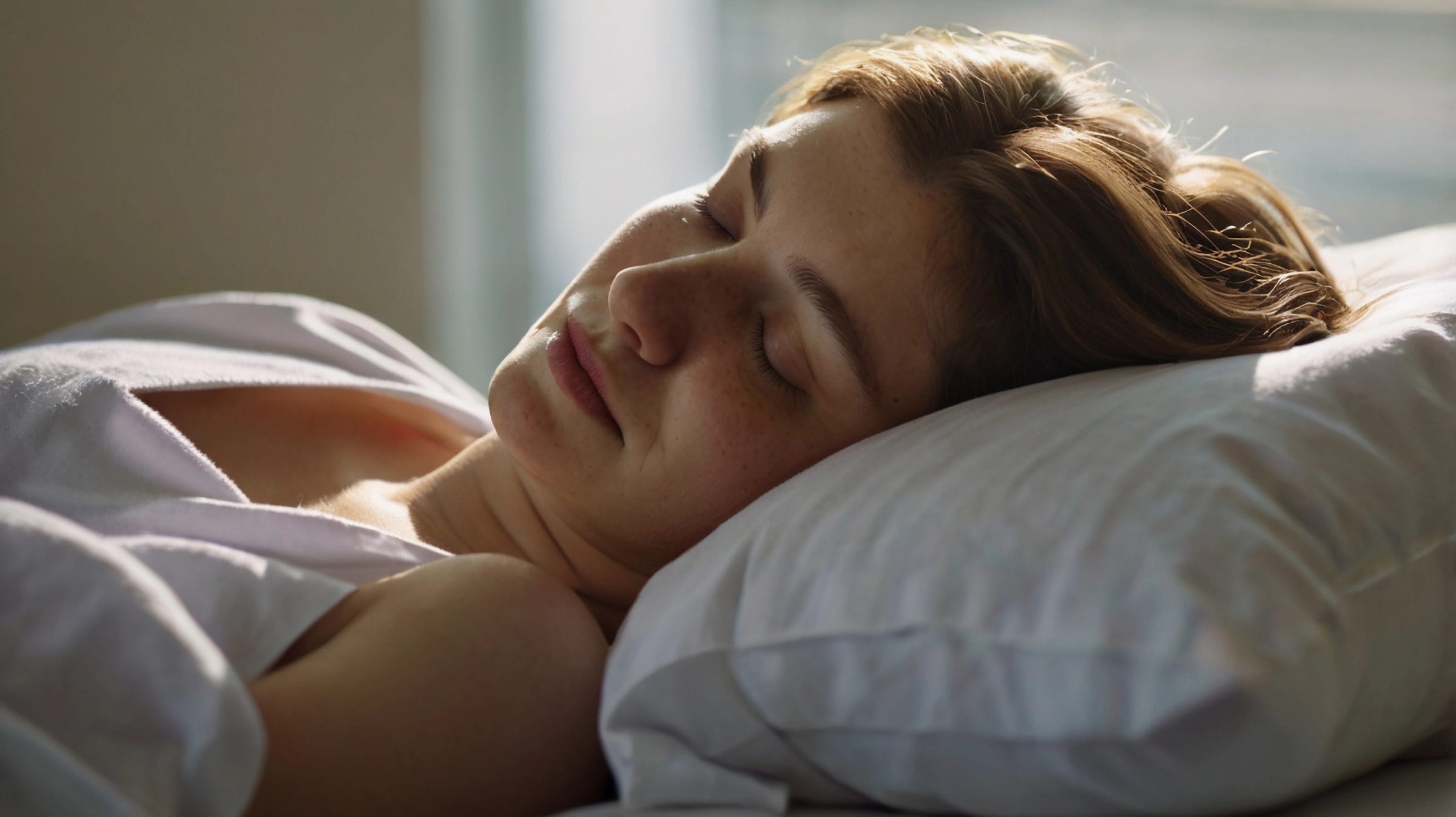Tackling Menopausal Insomnia: My Sleep Crisis
A detailed look at how sleep is affected by perimenopause and menopause
Happy Menopause Awareness Month! Today, Cinda Serianni shares her experience with tackling Menopause insomnia. Having issues sleeping well is a very common menopause symptom. Studies show that 35% to 60% of us suffer from sleep disturbances during (peri)menopause. Learning what helps and what remedies you can try will help you bring back restful sleep, energy and joy into your life.
My Menopause Brain is an entirely reader-supported publication that wants to spread Menopause Awareness to as many women as possible. If you read our blog regularly and value the information you get here, please consider sharing this article or becoming a paid subscriber! You can also buy us a coffee to support us.
After months of waking up at 2 am on the dot and struggling to fall back asleep until 5, I was desperate to get a full night's sleep and understand what was standing in the way. I learned that sleep problems can start during perimenopause and continue into menopause and after. Indeed, sleep issues seem to peak in late perimenopause and continue into post-menopause.
I was 53 and perimenopausal. I didn’t know I was perimenopausal at the time because I was young, feeling fit and alive. Perimenopause was for old ladies, and that was not me! Except, it was.
A good night’s sleep typically involves seven to eight hours of quality, uninterrupted rest each night. Some women may need less, while others might need more.
During perimenopause and menopause, women’s sleep patterns change due to our changing reproductive hormones as well as several other factors, which can include low Vitamin D, low iron, and even low calcium intake.
Like many women in perimenopause or menopause, I was able to fall asleep without issue, only to find myself waking up in the early hours of the morning overheated. Interestingly, the hot flash is not what wakes us up but the changes in our brains which lead to the hot flashes trigger our awakening.
There are two major stages of sleep: REM (rapid eye movement) sleep or dreaming sleep; and non-REM or quiet, healing sleep. In REM sleep your brain is active. It is the stage of sleep where you dream. Thinking and most bodily functions slow down, but movement can still occur, and a person often shifts position while sinking into deeper stages of sleep. REM sleep makes up about 25% of your total sleep time.
Deep sleep also helps cool our brains. Blood flow is less directed toward our brain, and in deep sleep, the pituitary gland releases a pulse of growth hormones, stimulating tissue growth and muscle repair.
After REM sleep comes deeper sleep or non-REM sleep. Deep sleep is characterized by slow brain waves called delta waves. When our brain slows down, our body enters deep healing sleep. Our blood pressure falls, and our pulse slows down. The brain is less responsive to external stimuli, making it difficult to wake up. This deep sleep aids in the repair of injuries and reinforces our immune system.
Just as deep sleep restores our bodies, it also restores our minds, perhaps in part by helping clear out irrelevant information. Deep sleep also helps cool our brains. Blood flow is less directed toward our brain, and in deep sleep, the pituitary gland releases a pulse of growth hormones, stimulating tissue growth and muscle repair.
It is during this deep sleep that many women wake up to hot flushes and are unable to go back to sleep, spending hours counting sheep or, worse yet, fiddling with their smartphones.
Losing deep sleep means losing that restorative time for our bodies and minds. It also means that our growth hormone will likely be lower than usual, and insulin and cortisol will remain high. This is troubling as the high insulin and high cortisol competes with melatonin, the sleep hormone, which is already low because of the change in estrogen levels in perimenopausal and menopausal women.
It’s no wonder that women often experience daily fatigue, exhaustion, and irritability. On top of that, disrupted insulin levels overnight can lead to weight gain, particularly around the belly.
Not every woman in perimenopause and menopause will get the 2 am wake-up call. But there are other sleep disruptors lurking in the shadows. Women can also develop sleep apnea, which may develop from a loss of estrogen and progesterone. Many times, women don’t recognize the symptoms of sleep apnea, like daytime drowsiness, difficulty concentrating and irritability, because they just chalk it up to the symptoms of perimenopause or menopause itself.
Experts note that postmenopausal women are two to three times more likely to have sleep apnea compared with premenopausal women. Before menopause, people are fairly protected, but the protective effect of hormones seems to be lost with menopause. Also, women going through menopause are more likely to have a drop in oxygen levels.
Women with sleep problems may benefit from a referral to a sleep center for diagnosis and treatment options.
The decline in estrogen can disrupt sleep by causing anxiety and depression. This creates a catch-22 situation, as poor sleep is known to increase depression, anxiety, and stress, which in turn further disrupt sleep.
WHAT CAN YOU DO TO BE MORE RESTED?
Some tips for good sleep include:
Get up at the same time every morning - Maintaining a regular sleep pattern will help stabilise your body clock. Sunday morning lie-ins, although wonderful, are not a great idea as they may delay the production of melatonin, leading to lighter sleep. Many people rely on lazy mornings, but despite what you’ve been told, this is not a quick fix for catching up on sleep debt!
Increase daytime bright light exposure - Exposure to natural light during the day helps regulate your circadian rhythm, which can improve sleep quality. Try to spend at least 30 minutes outside each day, especially in the morning. If natural light is limited, consider using a light therapy box.
Exercise regularly - Regular physical activity can help you fall asleep faster and enjoy deeper sleep. Aim for at least 30 minutes of moderate exercise, such as walking or swimming, most days of the week. However, avoid vigorous exercise close to bedtime as it may interfere with your sleep.
Set aside a “worry time,” including journaling or writing down thoughts and feelings - Designate a specific time during the day to write down your worries and thoughts. This practice can help clear your mind before bed. Journaling about your day or your feelings can also be therapeutic and reduce anxiety.
Establish a comfortable sleep environment - Create a sleep-friendly environment by keeping your bedroom cool, dark, and quiet. Invest in a comfortable mattress and pillows. Consider using blackout curtains, earplugs, or a white noise machine to minimize disturbances.
Do something relaxing before bedtime - Engage in relaxing activities before bed to signal to your body that it’s time to wind down. This could include reading a book, taking a warm bath, practicing gentle yoga, or listening to calming music. Avoid screens and bright lights as they can interfere with melatonin production.
Sleep hygiene is important. However, it may not address the underlying causes of sleep disturbances associated with menopause.
Some studies suggest that certain antidepressant medications, such as selective serotonin reuptake inhibitors, also known as SSRIs, can improve sleep quality in menopausal individuals. Antidepressants have sedative effects and may provide benefits in women with night hot flashes or depression. However, there currently are no antidepressant medications specifically approved for the treatment of sleeplessness.
Recent research indicates that HRT can be beneficial for sleep, especially in controlling night sweats.
Hormone replacement therapy (HRT) may also be an option. Recent research indicates that HRT can be beneficial for sleep, especially in controlling night sweats.
Melatonin hormone regulates our sleep-wake cycle. As we age, melatonin levels decline, leading to sleep disturbances. Taking melatonin supplements can be helpful in the short term, but be cautious as it may suppress your body’s natural production, potentially worsening sleep over time.
Another promising approach is Cognitive Behavioral Therapy for Insomnia (CBTi). Recommended by experts, CBTi helps address underlying factors like stress that contribute to poor sleep. Consider it as a long-term solution rather than a quick fix. CBTi is recommended as a first-line treatment by the National Institute for Care and Excellence (NICE), as well as the British Menopause Society and the National Institute for Health.
Consult your doctor to determine what treatment could be right for you.
Menopause and perimenopause-related sleep disturbances greatly affect women’s quality of life and long-term well-being. This, in turn, reduces workplace productivity, strains personal and social relationships, and increases the risk of poor physical, cognitive, and mental health.
It’s time to prioritize women’s health by addressing menopause-related sleep disturbances. If you or someone you know is struggling with these issues, seek professional help and explore treatment options. Together, we can improve the quality of life for countless women. Let’s take action now for a healthier, more productive future.
is the host of the podcast Simply Cinda, dedicated to women over 50, where she explores topics such as perimenopause and menopause. She is passionate about raising awareness and providing support for women navigating this important phase of life.Follow Cinda on Instagram at @Simply_Cinda1 and subscribe to her podcast at https://pca.st/znf7pxdl.
My Menopause Brain is looking for writers who want to share their experiences and create more menopause awareness. Apply here if you’re interested.







Great ideas here. Sleep is a huge issue for many of us. I've found that cooling down my room considerably (in winter, opening my window) and sleeping under thick covers really helps.